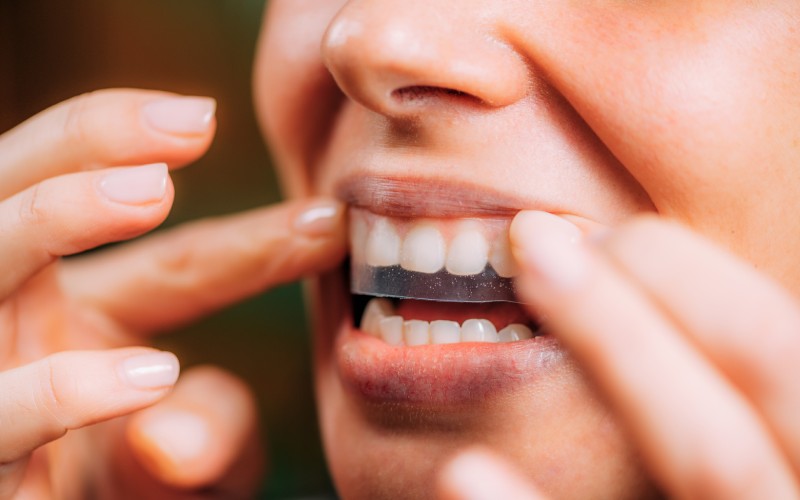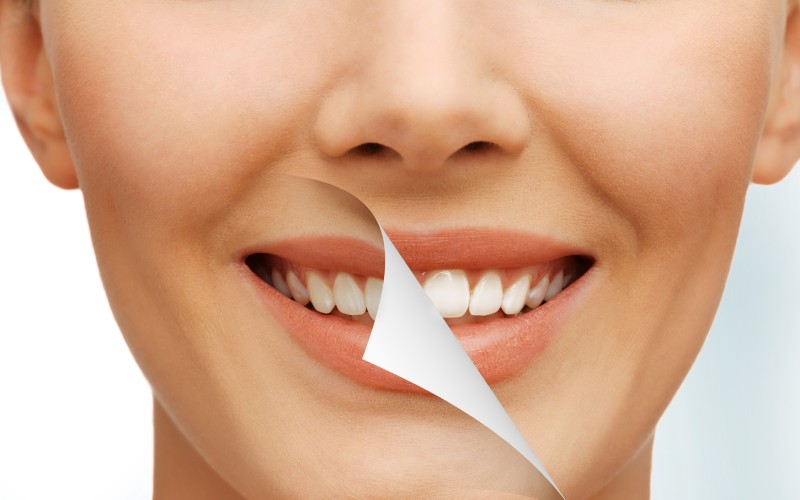Ever thought about getting your teeth whitened? You’re not alone. It’s a decision that often comes with a lot of questions, and we’re here to provide the answers.
In this article, we’ll tackle the most frequently asked questions about teeth whitening procedures; from the in-office treatments that can make your teeth six shades lighter, to the convenience of at-home kits. We’ll also discuss the costs involved, and why it’s usually an out-of-pocket expense.
So, if you’re considering teeth whitening, or simply curious about the process, stay tuned. We’ll shed light on the subject, so you can make an informed decision about your dental health.
What is Teeth Whitening?
Teeth whitening is a widely recognized cosmetic dental procedure. There are a lot of people opting for this treatment, yet many don’t fully comprehend what it involves.
How Does Teeth Whitening Work?
The process of teeth whitening involves a tooth-safe gel containing a peroxide compound. When applied, this peroxide-based gel releases oxygen that penetrates the hard surface of a tooth, known as enamel. This reaction leads to the lightening of your teeth.
Professional teeth whitening systems speed up this process by inducing the reactions through oxidation. Oxygen molecules from the gel come into contact with the discoloured molecules attached to your tooth, allowing them to break away. This ultimately brings out the whiteness and radiance of your teeth. For optimal results, the gel is typically used within a well-fitting, bespoke whitening tray prescribed by a dental professional.
Is Teeth Whitening Safe?
There’s often a concern regarding the safety of teeth whitening procedures. It’s important to debunk the myths that teeth whitening removes a layer of your tooth, ruins your teeth, or damages the enamel. In reality, research shows there’s no significant long-term effect associated with either professional or at-home whitening treatments containing 10 – 16% carbamide peroxide or 6% hydrogen peroxide.
Who can Benefit from Teeth Whitening?
The beauty of teeth whitening is that almost anyone can benefit from it. You don’t have to be a Hollywood star to flaunt an attractive smile. It’s crucial to note that the treatment results may vary based on one’s dental health. Thus, it’s beneficial to consult a professional for personalized advice to achieve the most effective results.
Remember, with various tooth whitening options available, you should consider what works best for your smile. From over-the-counter products to professional whitening treatments, each offers a unique set of benefits. Hoping to improve your smile? Consider exploring this service under the guidance of a professional dental office.
Different Teeth Whitening Methods
The quest for a dazzling, white smile has led to the development of several methods for teeth whitening. These fall into two major categories: over-the-counter products and professional treatments administered by your dentist. Each technique comes with its strengths and will cater to your specific needs based on factors such as budget, time constraints, and the degree of whitening desired.
Over-the-Counter Whitening Products
Over-the-counter products present an attractive option if you’re seeking a less expensive way to lighten your smile. Options include whitening toothpaste, gels, and strips. However, do bear in mind that these options may wear off the enamel in the long term. It’s important to note that while these products could make your teeth seem brighter initially, there might be loss of tooth surface over an extended use period.
Typically, these whitening solutions contain about 0.1% hydrogen peroxide. Products with a higher concentration are illegal, as low concentrations do not yield as stable results as professional teeth whitening options. While over-the-counter products offer the convenience of at-home use, they lack the strength of the solutions used by professionals, which contain 35%-45% peroxide.

Professional Teeth Whitening Treatments
When it comes to receiving the most effective, longest-lasting results, professional teeth whitening treatments stand unmatched. Administered by registered dental professionals, a professional service will use high-quality teeth whitening products that often contain ingredients like carbamide peroxide and hydrogen peroxide.
Professional bleaching is a common method used by dentists. It contains either carbamide or hydrogen peroxide, both of which are effective in removing surface stains and reaching deeper into the teeth to do away with the cause of the unnatural color. Compared to over-the-counter alternatives, you will markedly see the difference if you’ve tried the DIY route before.
The significant advantage of having your teeth whitened professionally is the safe and regulated environment. Only registered dental professionals – dentists, dental hygienists, dental therapists, and dental technicians – are legally allowed to administer teeth whitening treatments.
Whether you choose professional dental service or an over-the-counter product, it’s crucial to respect your teeth’s health. Rest assured, teeth whitening can be a safe treatment option if done properly and professionally. If you experience prolonged sensitivity during or after treatment, consult your dentist about suitable products or a course of action to alleviate it.
Common Questions About Teeth Whitening
Teeth whitening is an increasingly popular practice. It’s clear that people are becoming more conscious of their smiles, wanting to attain a brighter, more appealing shade for their teeth.
Will Teeth Whitening Make My Teeth Sensitive?
Sensitivity during and after teeth whitening is common but typically temporary. Teeth whitening can trigger a slight sensitivity in your teeth and gums, but this does not last forever. If you have pre-existing sensitivity due to dental conditions like cracked teeth or open cavities, expect that these conditions might increase or prolong the sensitivity. However, it typically subsides a few days after the treatment, returning your teeth to their previous state of sensitivity.
Additionally, dental professionals are knowledgeable about handling sensitive teeth; they may advise you to use special toothpaste before and after the treatment. It’s also worth noting that getting your teeth whitened by a professional significantly reduces the risk of any damage to your enamel or gums, saving you from any unnecessary future pain.
Can Teeth Whitening Remove All Stains?
Teeth whitening has proven to be effective in dealing with most types of stains, but, regrettably, it doesn’t remove all stains. The external staining, or superficial staining, caused by food, drinks, or tobacco is usually easier to manage. But also keep in mind that superficial staining is often a symptom of poor dental hygiene. A session with a dental hygienist might efficiently remove these stains, save you money, and also address the root cause of the problem.
How Often Can I Whiten My Teeth?
How frequently you can whiten your teeth entirely depends on the method of whitening you choose and your dentist’s advice. If you’re using over-the-counter products, it’s recommended to follow the product instructions exactly to avoid wearing off your enamel. As for professional teeth whitening treatments, discuss this with your dentist who will determine the best frequency based on the condition and sensitivity of your teeth. It’s crucial not to overdo it as it may end up causing more harm than good to your tooth enamel. With optimal care and maintenance, results of professional teeth whitening can last for years.
Tips for Maintaining a Bright Smile
Now that you’re familiar with the teeth whitening process, let’s dive into some tips and tricks to keep your smile dazzling long after your whitening treatment.
Brushing and Flossing Regularly
Keeping up with good oral hygiene habits is essential for maintaining your luminous smile. Using whitening toothpaste with a mild abrasive or peroxide can help keep stains at bay. Remember to brush and floss your teeth regularly – at least twice a day. This will not only help to remove daily stains but also keep your teeth free of plaque and tartar. Teeth whitening works best on clean teeth; getting rid of the debris allows the whitening product to work more effectively.

Limiting Stain-Causing Foods and Drinks
One simple trick to keep your teeth shiny is to control your intake of stain-causing foods and drinks. If possible, switch to alternatives that are less likely to stain your teeth.
If you can’t stay away from your favourite drink, consider using a straw to limit the contact between the liquid and your teeth. This could significantly decrease the chance of staining and keep your teeth at their brightest.
Regular Dental Check-ups
Regular dental visits are crucial for maintaining your dazzling smile. During your normal six-month check-ups, your dentist can assess how your teeth are doing and suggest when it might be time for your next whitening session. These visits also ensure any plaque or tartar buildup is professionally removed, which prolongs the effectiveness of your latest whitening treatment.
Remember, at-home whitening kits can be handy for convenience and cost, but they generally have lower peroxide concentrations. As a result, the process can take several weeks to achieve your desired shade. Regular visits to the dentist will help you optimize your whitening treatments and maintain your beautiful, bright smile. How long the results last ultimately comes down to your oral care and lifestyle habits.
Dr. Sidiura and his team at South Oak Dental will be happy to consult with you and answer any further questions you may have about teeth whitening.


